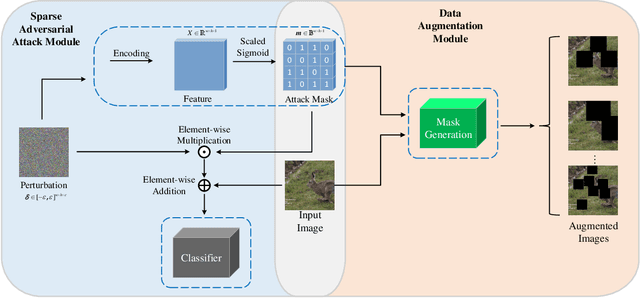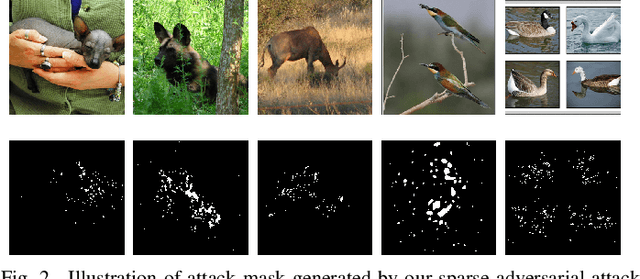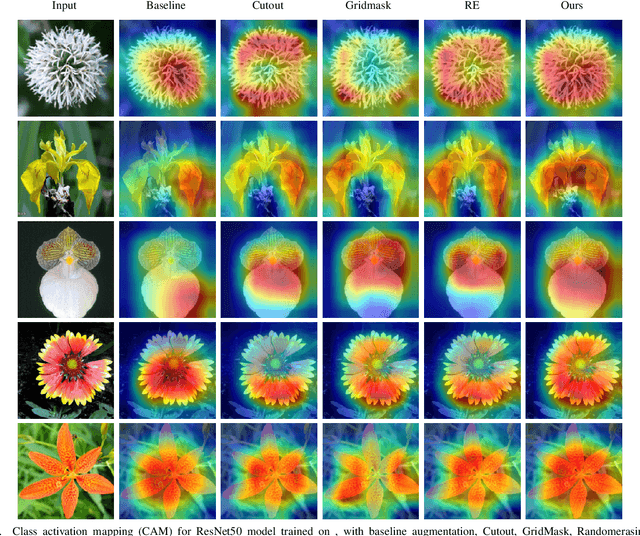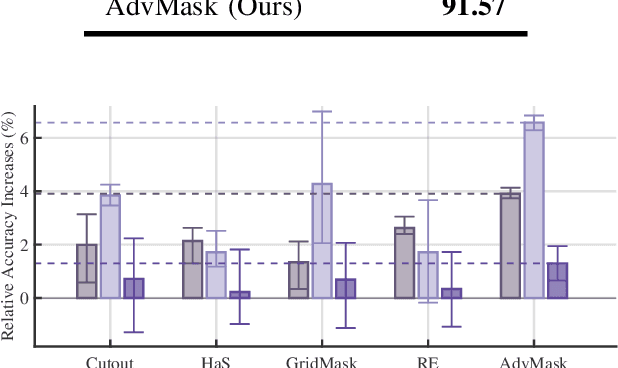Jinqiao Li
AdvMask: A Sparse Adversarial Attack Based Data Augmentation Method for Image Classification
Nov 29, 2022



Abstract:Data augmentation is a widely used technique for enhancing the generalization ability of convolutional neural networks (CNNs) in image classification tasks. Occlusion is a critical factor that affects on the generalization ability of image classification models. In order to generate new samples, existing data augmentation methods based on information deletion simulate occluded samples by randomly removing some areas in the images. However, those methods cannot delete areas of the images according to their structural features of the images. To solve those problems, we propose a novel data augmentation method, AdvMask, for image classification tasks. Instead of randomly removing areas in the images, AdvMask obtains the key points that have the greatest influence on the classification results via an end-to-end sparse adversarial attack module. Therefore, we can find the most sensitive points of the classification results without considering the diversity of various image appearance and shapes of the object of interest. In addition, a data augmentation module is employed to generate structured masks based on the key points, thus forcing the CNN classification models to seek other relevant content when the most discriminative content is hidden. AdvMask can effectively improve the performance of classification models in the testing process. The experimental results on various datasets and CNN models verify that the proposed method outperforms other previous data augmentation methods in image classification tasks.
AutoAdversary: A Pixel Pruning Method for Sparse Adversarial Attack
Mar 18, 2022



Abstract:Deep neural networks (DNNs) have been proven to be vulnerable to adversarial examples. A special branch of adversarial examples, namely sparse adversarial examples, can fool the target DNNs by perturbing only a few pixels. However, many existing sparse adversarial attacks use heuristic methods to select the pixels to be perturbed, and regard the pixel selection and the adversarial attack as two separate steps. From the perspective of neural network pruning, we propose a novel end-to-end sparse adversarial attack method, namely AutoAdversary, which can find the most important pixels automatically by integrating the pixel selection into the adversarial attack. Specifically, our method utilizes a trainable neural network to generate a binary mask for the pixel selection. After jointly optimizing the adversarial perturbation and the neural network, only the pixels corresponding to the value 1 in the mask are perturbed. Experiments demonstrate the superiority of our proposed method over several state-of-the-art methods. Furthermore, since AutoAdversary does not require a heuristic pixel selection process, it does not slow down excessively as other methods when the image size increases.
 Add to Chrome
Add to Chrome Add to Firefox
Add to Firefox Add to Edge
Add to Edge